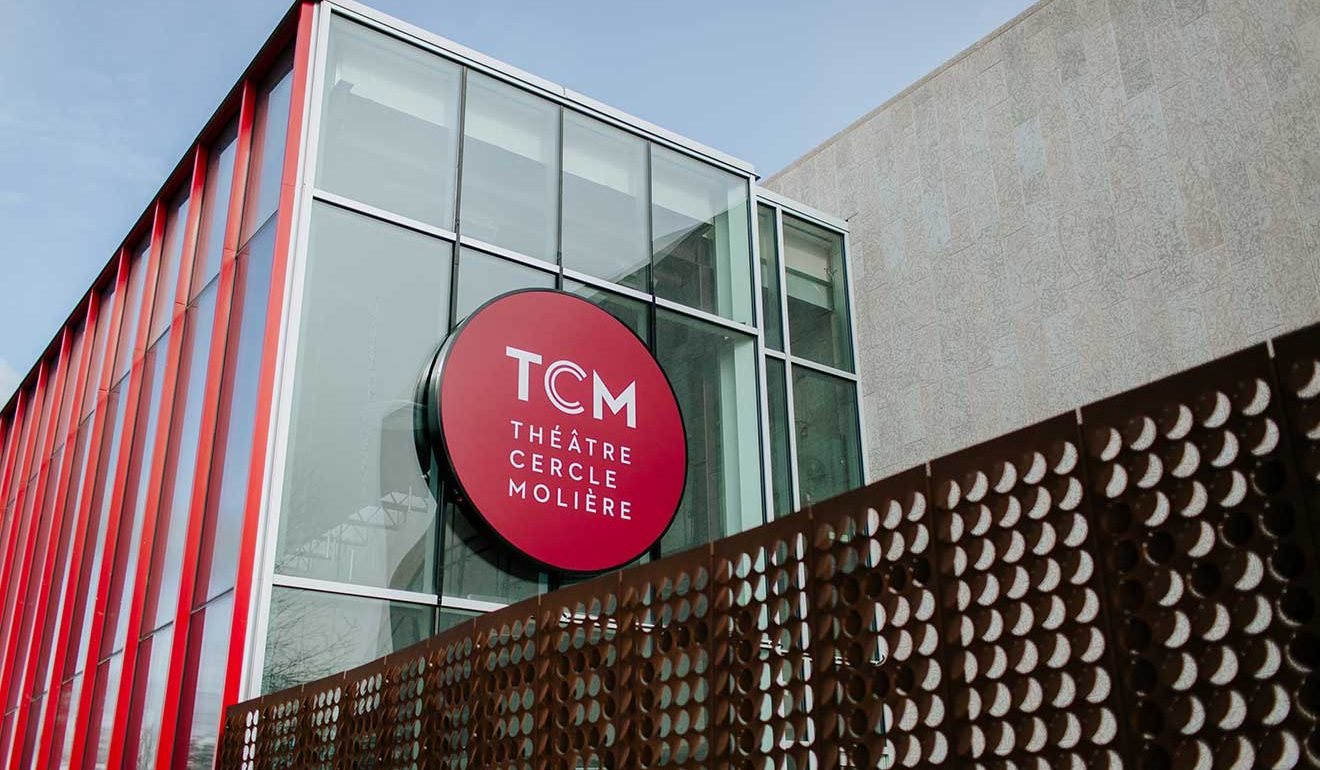Théâtre Cercle Molière, at the heart of the Winnipeg’s Francophone theatre scene since 1925

In the late 1920s, the annual performances of the Cercle Molière were an important event, helping to bring Manitoba’s Francophone community together. The theatre troupe’s professionalism and repertory centering around French playwrights entertained the community for four decades. Then, Franco-Manitobans took possession of the Cercle Molière to express their own reality, to write their own plays and to draw on a wide repertory of French Canadian, Quebecand foreign playwrights. Today, the Théâtre Cercle Molière continues to nourish the flame of French language theatre in Manitoba, both in its inviting new modern premises and throughout the Manitoban school system. Always at the vanguard, it reinvents itself on pace with society, to the delight of its audiences.
To learn more…
The astonishing vitality of a 100-year-old theatrical institution
The Théâtre Cercle Molière pursues with passion and determination the original mission adopted by its artists and producers. It encourages the younger generation to put on plays in French, and it regularly performs original works by Franco-Manitoban authors. It trains actors and tours schools to expose young people to this vibrant means of expression. It collaborates with other theatre companies to diversify its performances and reflect the diversity of Canada today. Its brand-new premises enable it to put on high-quality performances and better accommodate its audience. This old troupe is younger than ever!
Bringing French into the limelight
The Francophones of the west have long been theatre lovers. Theatre has enabled them to get together, share their culture and publicly extend the influence of the language that is so dear to them. In 1925, a few enthusiasts from France, Belgium, Switzerland and Canada got together and created the Théâtre Cercle Molière, a theatre troupe that has produced plays without interruption from 1925 to today, thus becoming the oldest company of its kind in Canada.
In the 1930s, at a time when celebrated Franco-Manitoban author Gabrielle Roy was a member of the Cercle Molière, the company put on plays only once or twice a year, in one of Winnipeg’s large playhouses. These performances were a major highlight in the social and cultural life of Manitoba’s Francophone elite. The troupe sometimes performed at Ottawa’s Dominion Drama Festival, where its actors won trophies. At that time, husband and wife Arthur and Pauline Boutal were the heart and soul of the company.
Growth of the Cercle Molière
In 1941, Pauline Boutal, a native of France, replaced her husband as the Cercle Molière director. This versatile artist had a profound influence on the evolution of the troupe. She recruited and trained young actors and directors. She obtained funding to have the troupe tour in other cities in Manitoba and Alberta. In 1960, she founded l’Atelier, where the history of the theatre and bodily expression and improvisation were taught. Various resources were made available to those who participated in l’Atelier, to make them into real theatre practitioners. Over the years, although the Cercle Molière changed locations a few times, its audience always remained faithful.
Franco-Manitoban appropriation
In 1968, Roland Mahé, who had originally trained under Pauline Boutal and later in theatre schools in Montreal and Strasbourg, took over the reins of the company. With other young Franco-Manitobans, he transformed the Cercle Molière. Contemporary French playwrights replaced the classics; then, Quebec authors and soon Franco-Manitobans appeared in the programming. The refined French that was so dear to the theatre people of European origin who directed the troupe and that was adopted by the Franco-Manitoban actors trained in classical colleges gave way to the popular language of the country, with its colourful archaisms and borrowings from English, which was in fact spoken by the majority of Franco-Manitobans. This familiar language and the new themes that resonated with spectators breathed new life into the relationship between the audience and the troupe. This gave renewed momentum to the Cercle Molière, which henceforth expressed the Franco-Manitoban identity in all its complexity. In the 1980s, the Cercle began putting on plays intended for young audiences.
Theatre, culture and society
Since then, the Cercle Molière’s programming has primarily reflected the realities, issues and debates in Manitoban and Canadian society, including contact between the Francophone minority and the Anglophone majority. For this reason, some performances were subtitled in English, so that spectators who were not fully proficient in French could appreciate the plays and discover French culture.
For almost a century now, the Cercle Molière has pursued its mission of enhancing the French language and culture, while promoting the community’s integration into the Anglophone majority of Manitoba.
A remarkable journey
Over the years, many awards have recognized the excellence of the work done by Cercle Molière artists. In addition to the many awards received at the Dominion Drama Festival between 1934 and 1956, the Cercle Molière also obtained several distinctions from the government of France: the Academic Palms to Arthur and Pauline Boutal; the medal of Recognition to Pauline Boutal, and the medal of the Ministry of Foreign Affairs to Norbert Trudel, Christiane LeGoff and Suzanne Tremblay. The Canada Arts Council, for its part, conferred the Canadian Drama Award on Arthur and Pauline Boutal, Élisa Houde, Christiane LeGoff and Gilles Guyot. Pauline Boutal also received the Merit Award of French Culture in Canada and became a member of the Order of Canada. Irène Mahé was inducted into the Ordre des francophones d’Amérique and received the Réseau Award. Finally, Roland Mahé was awarded the Manitoba Award.





